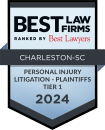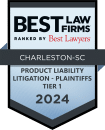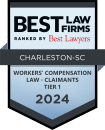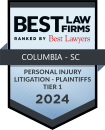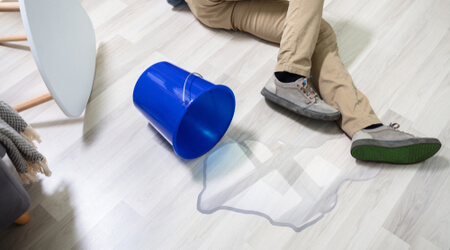
Wet and slippery floors are a leading cause of slip-and-fall accidents that result in personal injury or death. There are several ways a floor in a store, office building, home or other location can become wet and slippery, but it is the responsibility of the property owner to eliminate or mitigate the hazard and ensure the safety of visitors.
Owners or managers who fail to meet their duty of safety to someone who slips and falls because of a wet and slippery floor on their property may be held liable. A personal injury claim may seek compensation for the fall victim’s medical expenses and other losses, as well as for pain and suffering.
Have you have been injured in a fall caused by a wet and slippery floor? Just Call Joye Law Firm. Joye Law Firm’s slip-and-fall attorneys help people from throughout South Carolina who have fallen and been injured because of a property owner’s negligence. We want to help you, too.
How Floors Become Wet, Slippery and Dangerous
Floors become wet and slippery from a variety of substances that are tracked in, spilled on or applied to them. These include:
- Water, including rainwater
- Ice and snow
- Sand and mud
- Food (liquids and semi-solids)
- Detergents and polishes
- Oil, grease and fluids (tracked in or leaking from machinery, fixtures, etc.)
- Bodily fluids (blood, urine, sweat)
- Trash and waste material
Wet and slippery floor hazards may occur in any building, and are often encountered in:
- Grocery stores, malls and other retail stores
- Office or bank buildings, particularly in lobbies
- Fast food and sit-down restaurants
- Theaters
- Schools
- Daycare centers
- Garages and auto repair shops
- Medical care centers (hospitals, urgent care clinics, doctors’ offices, etc.)
Many people do not realize that private homeowners may also be held liable if a wet and slippery floor causes a visitor to fall and be injured if the visitor has been invited into the home or otherwise has a legal right to be there. Homeowners’ insurance usually pays slip-and-fall accident claims that arise out of accidents in private homes.
If a wet and slippery floor hazard is temporary, the property owner or manager should act in a timely manner to clean it up. If a floor remains wet and slippery after cleaning, property managers in public places should set out “wet floor” signage or otherwise provide adequate warnings to visitors.
Property owners who neglect these safety measures may be held liable through a premises liability claim if a slip-and-fall accident occurs.
Call a South Carolina Slip-and-Fall Accident Lawyer
If you have slipped, fallen and been seriously injured on a wet and slippery floor, you may be able to obtain compensation for your injuries from the property owner, lease holder, manager or other responsible party. Joye Law Firm can help you explore the potential for a claim for damages to assist with your medical bills, loss of income, pain and suffering and more.
Just Call Joye Law Firm
Our lawyers are experienced with South Carolina premises liability claims, and we are prepared to investigate your accident and injuries and seek justice for you.
Call us now or fill out our online contact form. We’ll set up a free initial consultation and evaluation of your legal options.
Sources:


